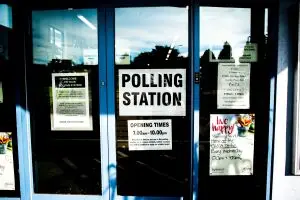All-Party Parliamentary Groups (APPGs) are informal cross-party groups formed of MPs and Members of the House of Lords who share a common interest in a particular policy area, region or country. APPGs have no official status within Parliament, however, concerns have arisen over their transparency and susceptibility to undue influence.
To address these concerns, the House of Commons Committee on Standards launched an inquiry in October 2020, and new rules on APPGs were agreed to by the House on 19 July 2023. These can be found here.
These rules are set to become effective on 16 October 2023 with a transitional period for adjustment, culminating in a compliance audit in April 2024. If you would like advice or require Brevia to provide secretariat support to an APPG, please visit our services page for more information or contact us using the following methods.
The New Rules[1]
- Each APPG must have exactly four officers, no more and no fewer.
- Two of these officers must be from the House of Commons.
- Members of the Commons can now serve as officers in a maximum of six APPGs.
- APPGs must have a minimum of 20 members.
- No APPG secretariat will be allowed to be provided or funded by foreign governments.
For APPGs that exceed £1,500 in income or benefits in kind, new transparency rules come into play:[2]
- The Annual General Meetings (AGMs) of these APPGs will be chaired by a neutral non-member of the APPG, selected by the Speaker.
- The minimum number of members needed for an AGM quorum will be raised from five to eight.
- These APPGs will be required to publish an annual report outlining their activities, achievements, and work throughout the year. Importantly, this report must include a due diligence statement about any funding received from foreign governments, ensuring accountability and deterring undue influence.
- The four officers of the APPG will be jointly and severally liable for ensuring compliance with these additional rules.
Transition and Implementation
The transition to these new rules includes several key phases:
Immediate Effect (16 October 2023): The prohibition of foreign government-funded secretariats takes immediate effect.
From 31 March 2024:
- APPGs must have four officers and no more. The Chair is one of the four officers.
- An APPG must have at least 20 members of either House (This includes the four officers of the group).
- The Chair or an Officer of an APPG must undertake due diligence as to whether a foreign government is the eventual funder of a secretariat or other benefit. Guidance on due diligence will be sent to Chairs of APPGs.
- For APPGs exceeding £1,500 in benefits:
- a quorum of 8 parliamentarians will be required for AGMs and EGMs.
- An external chair, appointed by the Speaker, will preside over AGMs and EGMs for these APPGs.
- These APPGs will also need to publish and approve an Annual Report and a due diligence statement.
From the start of the next parliament: A Member may be an officer of a maximum of six APPGs.
How will the new rules affect APPGs?
The updated rules for All-Party Parliamentary Groups mark a pivotal shift in their operations. The limiting of a Member of the Commons to six officer positions in APPGs aims to address concerns about overextension. The enhanced transparency rules higher-income APPGs must now adhere to, including neutral AGM chairs, a higher quorum, and publishing due diligence reports, aim to counter foreign influence risks and strengthen APPGs’ credibility. The joint and several liability of officers beyond £1,500 income is a significant change and underscores the importance of adherence to these new rules. These rules aim to proactively balance collaboration and oversight, fostering informed debates and subject expertise.
To prepare for the upcoming changes under the updated rules, APPGs should conduct a thorough review to understand the implications. They need to assess officer positions, ensuring a composition of exactly four officers, with at least two from the House of Commons. Membership should be evaluated to meet the minimum requirement of 20 members, and additional recruitment might be necessary. APPGs should check that their Members of the Commons holding officer positions do not exceed the limit of six APPGs per member.
For those groups that exceed the £1,500 threshold, AGM preparations should include considering neutral non-members to chair meetings and planning for the increased quorum of eight members. These APPGs must also plan for publishing comprehensive annual reports with due diligence statements.
Communication, process adjustments, strategic planning, and adherence to the transitional period are key. Proactive steps will enable APPGs to transition smoothly, ensuring compliance while maintaining their role in informed discussions and collaborative policymaking.
BREVIA CONSULTING PROVIDES STRAIGHTFORWARD POLITICAL ADVICE AND SUPPORT TO BUSINESSES AND CHARITIES
Discover how Brevia can provide secretariat support to an APPG by contacting the Brevia Team on 020 7091 1650 or contact@brevia.co.uk
[1] Parliament UK, Guide to the Rules on All-Party Parliamentary Groups, July 2023, Link
[2] Parliament UK, Guide to the Rules on All-Party Parliamentary Groups, July 2023, Link
[3] Parliament UK, Guide to the Rules on All-Party Parliamentary Groups, July 2023, Link
[4] Parliament UK, Guide to the Rules on All-Party Parliamentary Groups, July 2023, Link
[5] Parliament UK, Guide to the Rules on All-Party Parliamentary Groups, July 2023, Link




